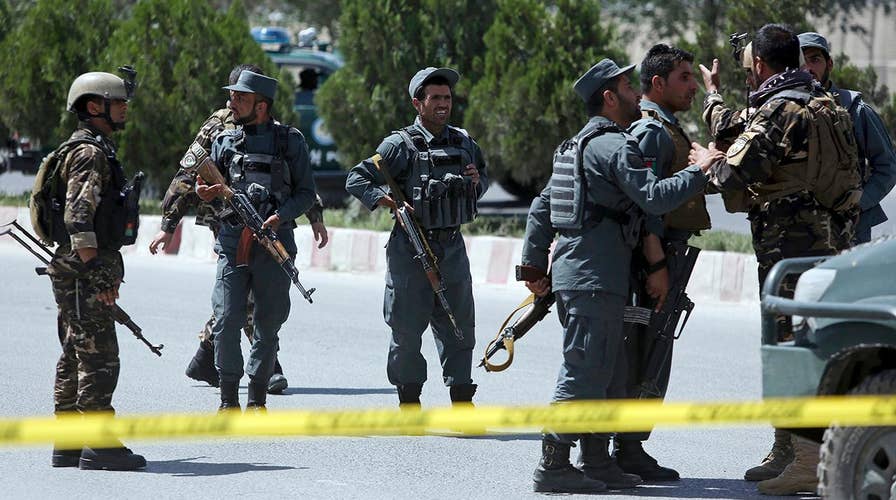At least 7 killed in Kabul suicide bombing
Explosion hit a gathering of top Muslim clerics in Kabul who issued a religious ruling against suicide bombings. Mike Tobin reports.
A suicide bombing targeted a gathering of Afghanistan's top clerics on Monday in Kabul, killing at least four people and wounding a fifth person, the police said. Shortly before the attack, the clerics had issued a fatwa against suicide bombings and urged peace talks to end the Afghan war.
Ghafor Aziz, police chief of Kabul's 5th District, said the bomber detonated his explosives near the entrance of a compound where the religious body, known as the Afghan Ulema Council, was meeting under the traditional tent of the Loya Jirga, the council of elders.
Had the attacker penetrated deeper, the casualty numbers could have been significantly higher, Aziz added.
No one immediately claimed responsibility for the attack.
Around 2,000 members of the council had gathered for the meeting at the tent erected in Afghan capital's 5th District. The explosion struck as the council was ending and the participants were about to leave, Aziz also said.
Shortly before the attack, the clerics had issued an Islamic ruling, or a fatwa, declaring that suicide attacks are "haram" -- forbidden under Islamic law.
The council appealed on both the Afghan government forces and the Taliban and other militants to halt the fighting and agree on a cease-fire. It also called for peace negotiations between the two sides. It was the first time the council has issued such an appeal.
Less than an hour before the attack happened, Ghofranullah Murad, a member of the council, read out a written statement from the gathering saying that innocent Afghan men, women and children are the true victims of war.
"The ongoing war in Afghanistan is illegal and has no root in Sharia (Islamic) law," the statement said. "It is illegal according to Islamic laws and it does nothing but shed the blood of Muslims."
"We the religious Ulema call on the Taliban to respond positively to the peace offer of the Afghan government in order to prevent further bloodshed in the country," it added.
The fatwa also said that killing people by any means -- such as bombs and suicide attacks -- as well as violent acts, including robbery and kidnapping, count as sins in Islam.









































